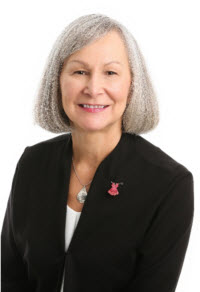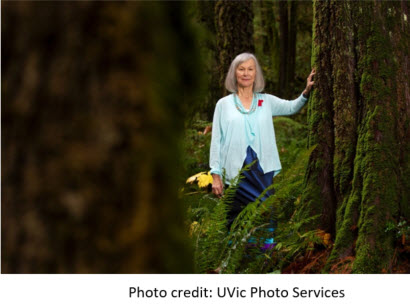Canada honours people who make extraordinary contributions to our nation by appointing them to the Order of Canada. In June, retired BC Provincial Court judge Marion Buller was appointed a member of the Order of Canada in recognition of “her leadership in Indigenous rights advocacy as the first woman of a First Nation to be appointed to the Provincial Court of British Columbia”.
In announcing this year’s appointments, Governor General Mary Simon said, “The Order of Canada celebrates the lives, endeavours and successes of people from coast to coast to coast and from all walks of life. Those being appointed today come from a variety of sectors, have achieved national and international success, and have shown ingenuity, innovation and generosity. What’s more, they have made a difference in their communities and for Canada with their outstanding dedication and commitment.”
Retired judge Buller exemplifies all those qualities. She is Cree and a member of the Mistawasis Nêhiyawak, a Cree First Nation in Saskatchewan. As a recent eNews outlined, she was the first woman of a First Nation to be appointed a judge in BC.

She served as a judge of the BC Provincial Court for 22 years, during which she was instrumental in establishing BC’s first Indigenous sentencing court and an Aboriginal Family Healing Court. She retired from the Court in 2016 to become chief commissioner for the National Inquiry into Missing and Murdered Indigenous Women and Girls. In January 2022 she began a three-year term as chancellor of the University of Victoria, where she obtained her undergraduate and law degrees.
Ms. Buller continues to practise law and write articles and papers on issues related to Aboriginal law, Indigenous People’s rights, and women.
“I’m deeply honoured to be recognized for the body of work that I’ve done so far,” she told UVic News. “However, I do want to highlight that the Order of Canada is for what I’ve done so far—because I’m not done yet.”

In her role as university chancellor, she hopes to integrate Indigeneity. She acknowledges that recognizing the many faces of colonialism is a challenge for anyone who has grown up surrounded by it. “The first step is to be able to see colonialism. I don’t always see it myself, to be honest,” she said. “We’re all learning, and that is so important because there’s flexibility there for all of us to think about how we can do this together.”
She added that shifting the mindset that it’s a zero-sum game is a critically important aspect of decolonization. “We need to get past the view that your win is my loss,” she said.
“Decolonization is like a potluck dinner: The more people you invite to a potluck, the more variety of food there is—and everybody eats well.”
The Order of Canada was created in 1967, Canada’s centennial year. Since then, Canadian trailblazers of all types – people who have enriched others’ lives and made a difference to our country - have been invested into the Order.
The Canadian system of government has three branches: judicial, executive, and legislative. While the achievements on which Ms. Buller’s appointment to the Order are based include her service as a judge, the honour is bestowed by the executive branch of government, not the judicial branch.
The Governor General’s website describes Order of Canada appointees this way: “Their grit and passion inspire us, teach us and show us the way forward. They exemplify the Order’s motto: Desiderantes meliorem patriam (a Latin phrase meaning “They desire a better country”).
It’s a fitting description of Marion Buller.
For more, see BC’s 1st First Nations woman judge.

